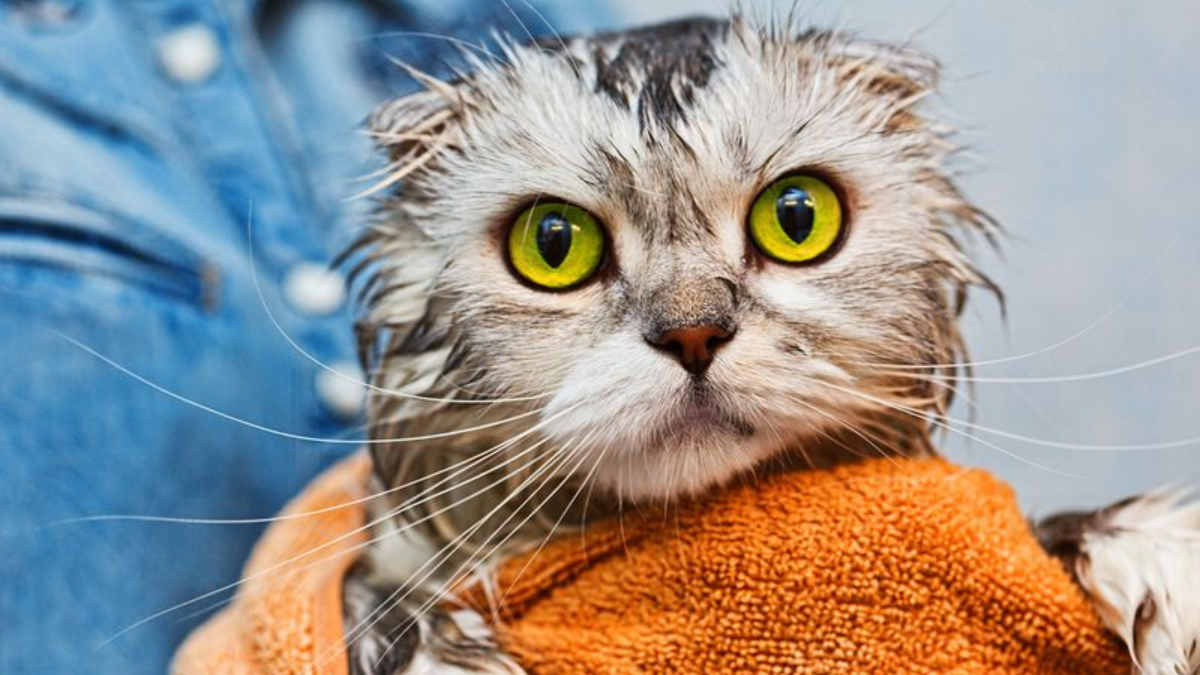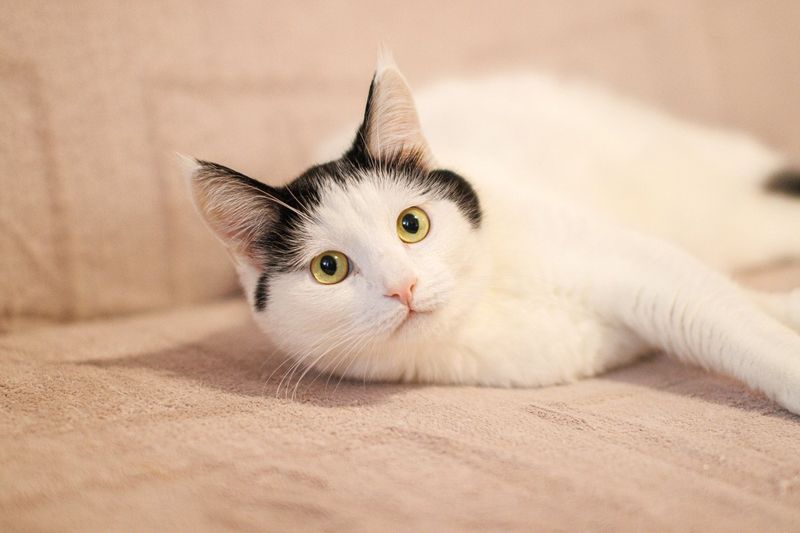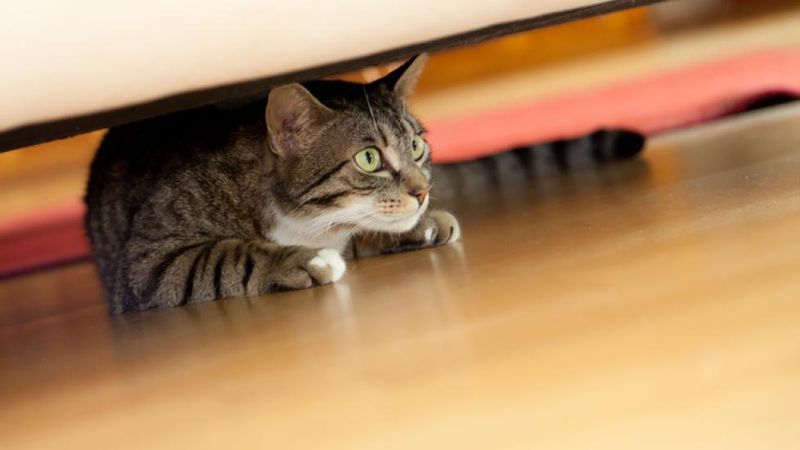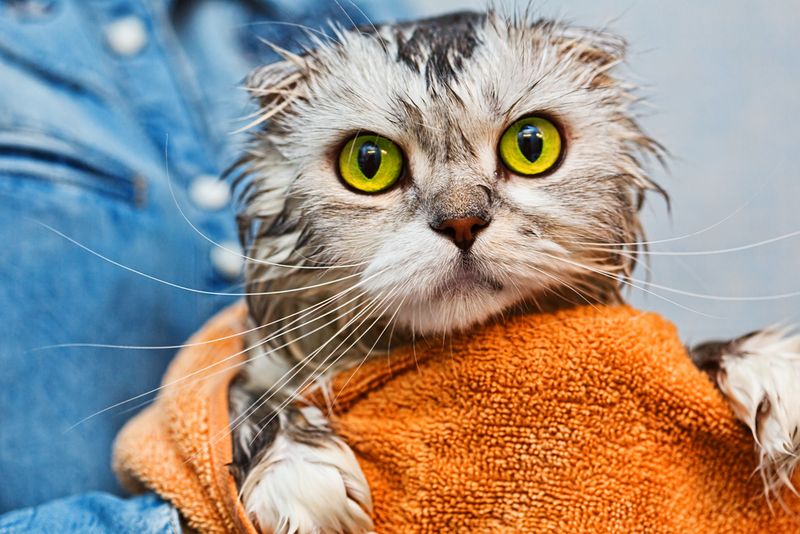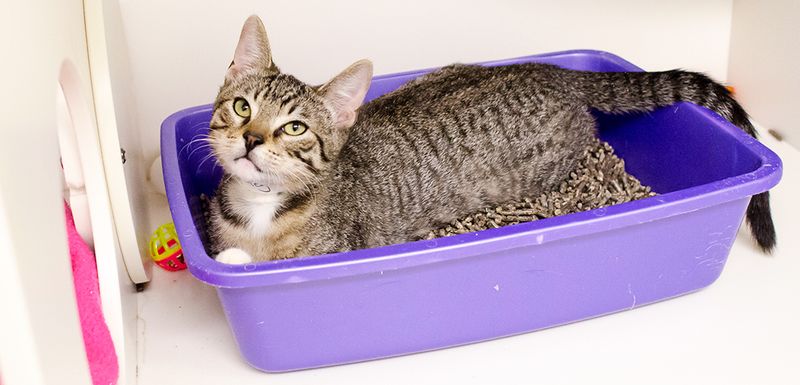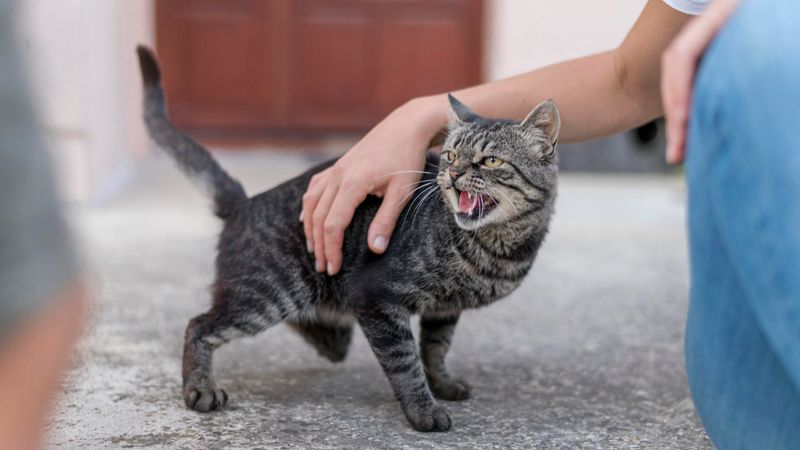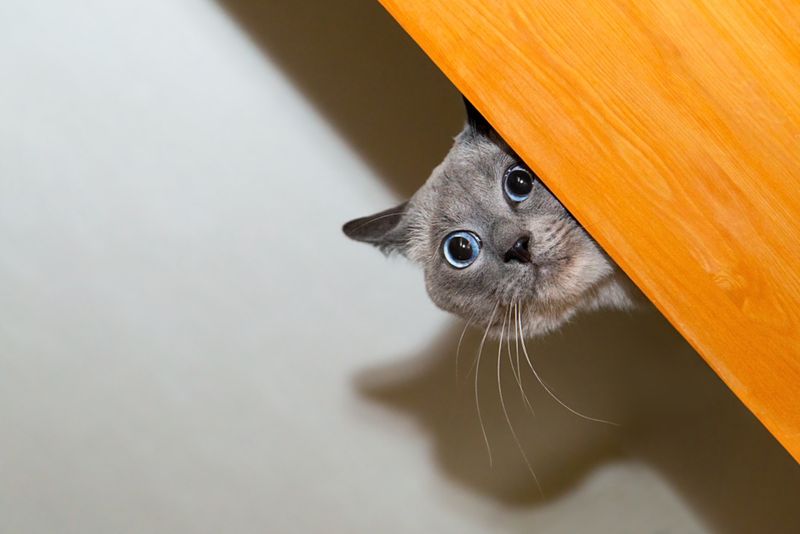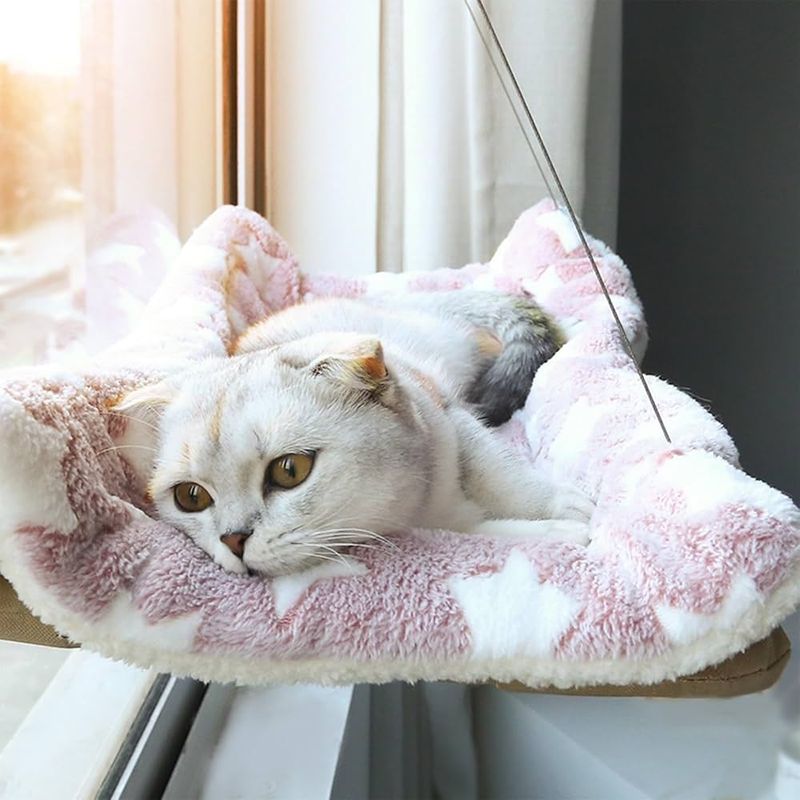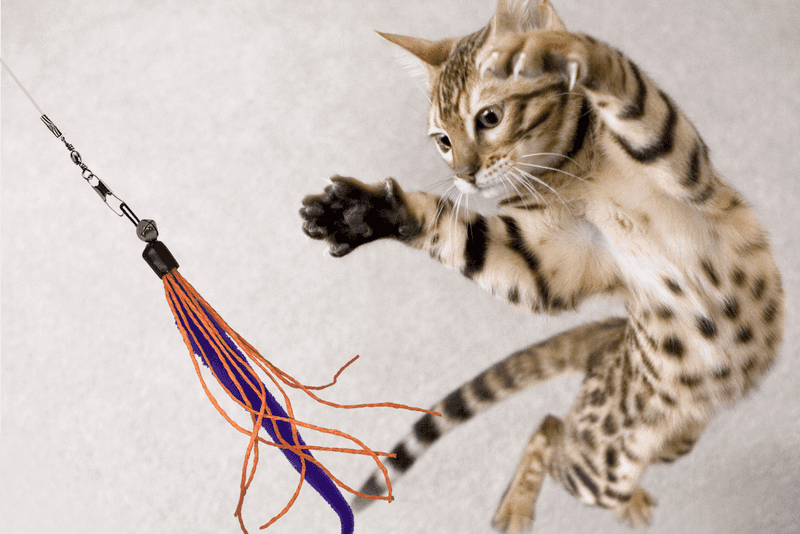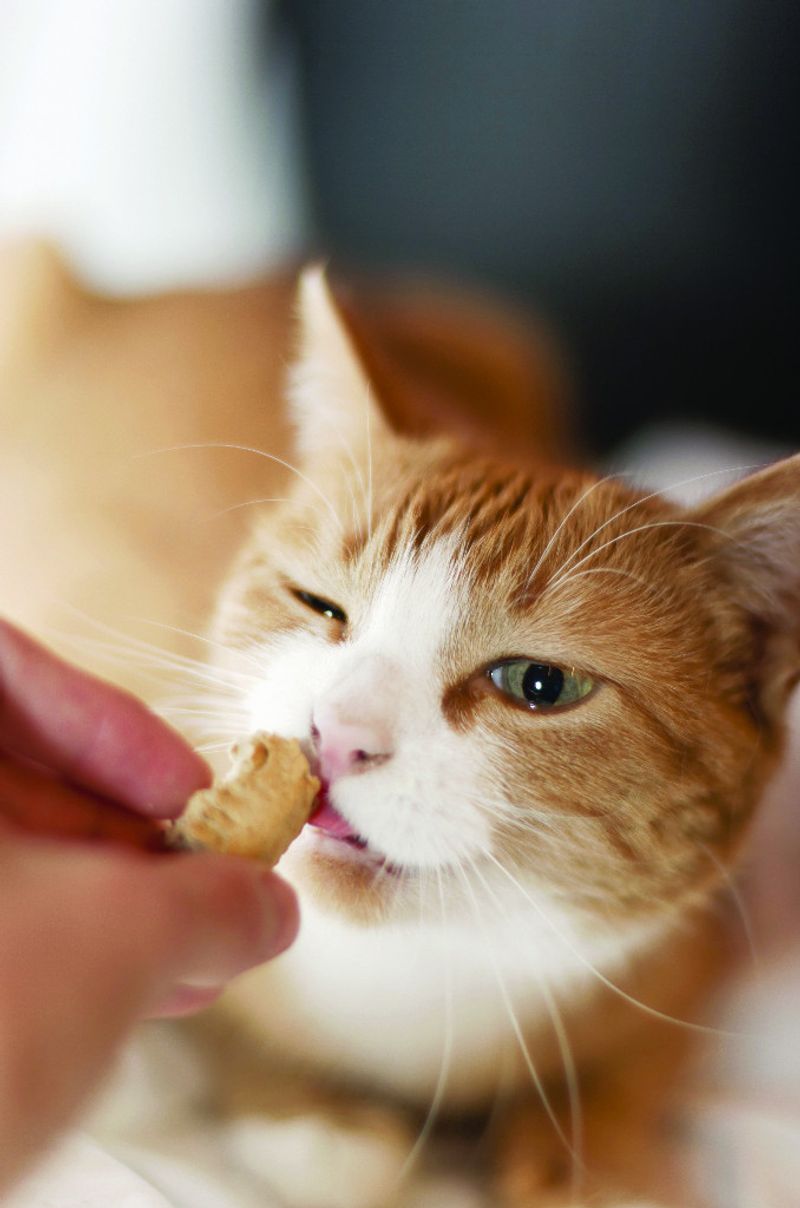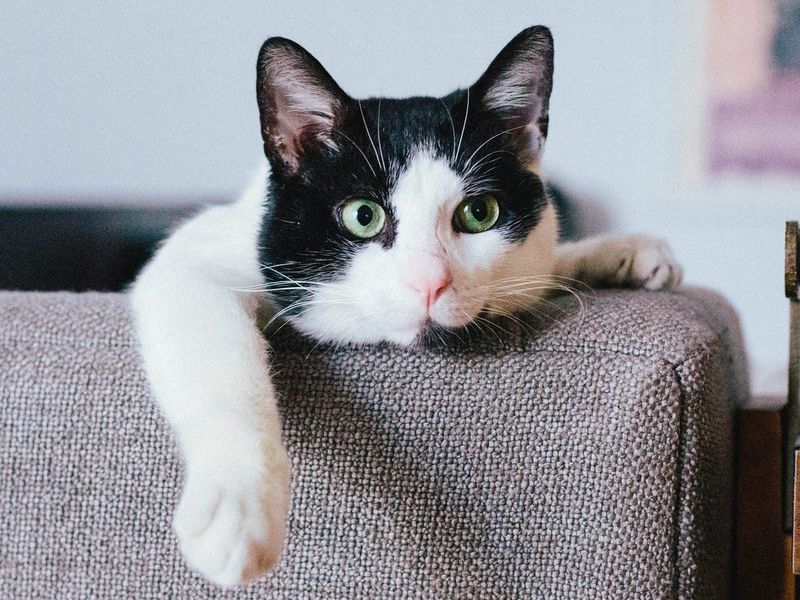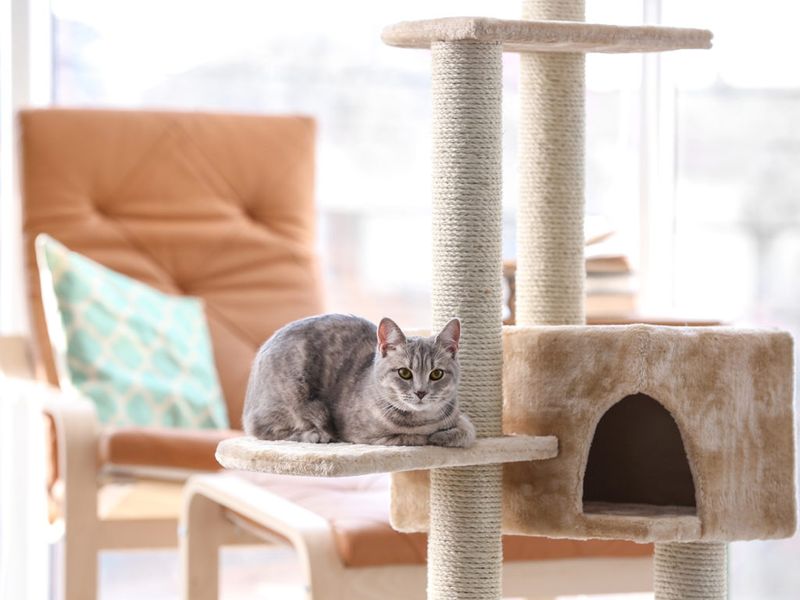📖 Table of Content:
- 1. Ignoring Their Personal Space
- 2. Loud Noises
- 3. Over-Grooming
- 4. Ignoring Litter Box Cleanliness
- 5. Forced Interactions with Strangers
- 6. Unpredictable Changes
- 7. Create a Cozy Retreat
- 8. Interactive Playtime
- 9. Treats and Rewards
- 10. Gentle Affection on Their Terms
- 11. Cat-Friendly Environment
- 12. Routine and Consistency
Cats are complex animals with distinct personalities and sensitivities. What might seem harmless to a human can easily irritate or stress out a feline. Their reactions often reflect deep instincts and emotional boundaries that deserve attention.
Certain everyday habits can unknowingly disrupt a cat’s sense of comfort or security. Loud noises, sudden movements, or inconsistent routines are just a few things that may cause tension. Recognizing these triggers is the first step toward building trust.
On the flip side, there are also simple actions that cats genuinely appreciate. Consistent affection, gentle interaction, and respect for their space go a long way. Understanding both sides helps create a peaceful, affectionate bond that benefits both cat and human.
1. Ignoring Their Personal Space
Though often affectionate, cats value their independence. Imagine coming home from a long day, only to feel smothered by constant attention. That’s how many felines feel when their space is not respected.
If your cat retreats to a quiet corner, it’s their way of saying they need a moment. Allowing them that freedom not only respects their personal boundaries but also fosters a healthier bond.
Think of your cat as a roommate who occasionally needs solitude. Respecting their retreat can make your interactions more meaningful and appreciated.
2. Loud Noises
No one enjoys a sudden loud noise, and cats are certainly no exception. Their sensitive ears mean that sounds like vacuums or blaring TVs can be distressing.
When a loud noise erupts, a cat may sprint away in search of safety. Providing a quiet refuge can ease their stress and keep your home peaceful.
Be mindful of the volume levels in your home, especially during your cat’s nap time. Lowering the decibels could make your cat feel more secure in their environment.
3. Over-Grooming
For many cats, grooming is a cherished ritual, but too much interference can ruin the experience. Over-brushing or using the wrong tools can irritate their delicate skin.
Imagine trying to relax while someone persistently combs your hair! Let your cat lead the grooming session, allowing them to walk away when they’ve had enough.
Choosing the right brush and understanding your cat’s grooming preferences can transform this activity from a chore into a bonding opportunity.
4. Ignoring Litter Box Cleanliness
Cats are fastidious creatures, and a dirty litter box is a pet peeve. A clean litter box is essential, much like having a tidy bathroom for us.
Neglecting to scoop the box regularly can lead to unpleasant surprises outside of it. Remember that scent is a powerful factor for cats, and cleanliness matters.
Regular maintenance of the litter box not only shows respect for your cat’s needs but also reduces odor and keeps your home fresh.
5. Forced Interactions with Strangers
Meeting new people can be as daunting for a cat as it is for some humans. Envision being forced into a handshake with every new person you meet.
Instead of pushing your cat towards visitors, allow them to approach at their own pace. A curious sniff or a tentative paw is their way of breaking the ice.
Encouraging gentle, patient interactions can help your cat feel more at ease around newcomers.
6. Unpredictable Changes
Sudden changes often make cats anxious. A new object in the home or feeding them at a different time can cause confusion. They rely on consistent patterns to feel grounded.
Imagine waking up one day to find your entire house rearranged—it would be disorienting. Gradual introductions to change can prevent unnecessary anxiety.
Maintaining a stable environment where your cat knows what to expect helps them feel secure and comfortable.
7. Create a Cozy Retreat
A warm, quiet space can mean the world to a cat. Whether it’s a sunny windowsill or a plush bed, they naturally gravitate toward comfort. These cozy spots become their go-to places for rest and relaxation.
Consider a designated area with a plush bed and a view of the outdoors. It resembles a peaceful retreat where your cat can unwind.
Not only does this encourage relaxation, but it also shows your cat that their comfort is important to you.
8. Interactive Playtime
Playtime is essential for a cat’s mental and physical health. Engaging with toys stimulates their natural hunting instincts.
Interactive sessions with feather toys or laser pointers offer both exercise and entertainment. It’s not just about play; it’s about strengthening your connection.
Spending quality time this way demonstrates that you’re attuned to their needs and enjoy their company.
9. Treats and Rewards
Who doesn’t love a treat? Cats are no different, and rewarding them with tasty morsels can strengthen your bond.
Offering treats during play or training reinforces positive behavior. It’s like a small token of appreciation they can savor.
Ensure the treats are healthy and given in moderation. It’s the gesture, more than the treat itself, that tells your cat they’re cherished.
10. Gentle Affection on Their Terms
On their own schedule, cats seek out affection in subtle, sweet ways. A gentle purr and a relaxed body in your lap mean they’re ready to connect. They prefer love on their own terms, not on demand.
Avoid forcing cuddles. Instead, wait for cues like head bumps or a nudge with their nose.
This respect for their autonomy builds trust and affection that’s genuine and heartfelt.
11. Cat-Friendly Environment
Transforming your home into a feline paradise is sure to win a cat’s heart. Think cat trees, scratching posts, and captivating toys.
These elements cater to a cat’s natural instincts, like climbing and scratching, and provide endless entertainment.
A home that meets their needs is not only enriching but also a testament to your care and dedication.
12. Routine and Consistency
Routine is a source of comfort for cats, much like it is for many humans. Regular feeding times and consistent routines create a sense of security.
Imagine knowing exactly when your meal will be served—it’s a comfort that transcends species.
By adhering to consistent schedules, you’re communicating reliability and care, making your cat feel loved and secure.
